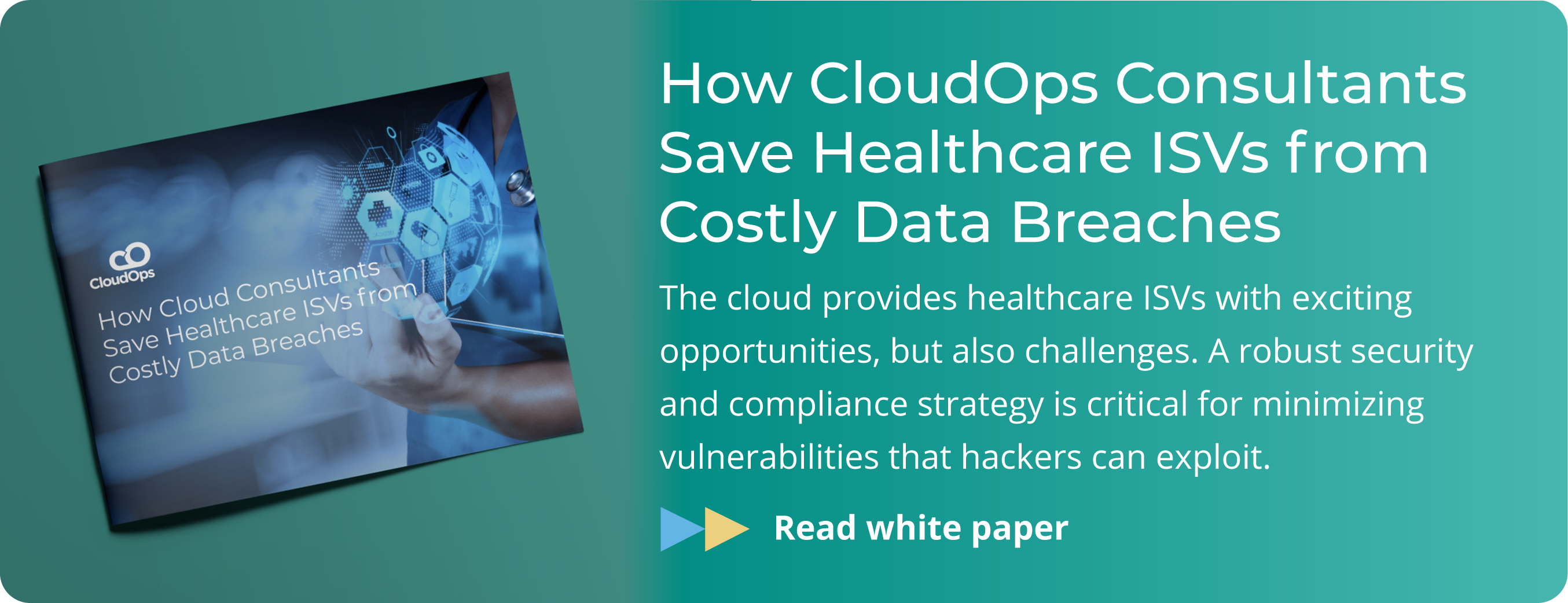10 Reasons Healthcare is Ready to Succeed in the Cloud

Healthcare has traditionally been one of the most challenging industries for integrating innovations from the tech sector. This is partially because of funding allocations, concerns over security, and an understandable hesitation to uproot systems that lives depend on. Cloud has been around for fifteen years, and yet most hospitals and large healthcare organizations are still struggling to embrace the operational models required to succeed in the cloud.
Crises have a tendency to accelerate social change. They highlight pre-existing weaknesses in systems and give decision-makers the impetus often required to adopt new tools, processes, and ways of thinking. The spread of COVID-19 has pushed an already strained medical system to the edge of its capacity, and new information systems are needed if patients are to receive the care and research they deserve. In 2021, it seems healthcare organizations are finally ready to succeed in the cloud. Here are just a few reasons why.
1. Scalability
Data stored in the cloud can scale dynamically according to demand, alleviating the pressure on IT to predict future infrastructure requirements. Hospitals can quickly acquire the right type and size of resources needed at any given moment. If there’s a sudden surge of patients or an innovative new idea for research, a hospital’s infrastructure can respond immediately - without paying an arm and a leg.
2. Interoperability
Once medical documents have been digitized and uploaded to the cloud, they can be accessed in different locations. Doctors can pull up a patient’s full medical records at a moment’s notice. The cloud allows data to be transferred seamlessly between stakeholders, promoting interoperability between various segments of the healthcare industry, including hospitals, clinics, pharmaceuticals, insurance, and payment.
3. Big Data and Analytics
In the past, it was extremely expensive and time-consuming to gather massive amounts of data. Today, data stored in the cloud is both sufficiently vast and centralized to be converted into relevant analytics. Researchers can access the data required to find trends in treatment plans and recovery rates. Hospitals can predict staffing needs, keep track of inventory, and use real-time alerting. The application of machine learning algorithms on big data can accelerate medical research and healthcare delivery.
4. Security
Security was initially a barrier to cloud adoption, as organizations were wary of the larger points of vulnerability created by distributed applications. However, today’s cloud outperforms traditional security approaches and technologies. Public cloud offerings have an array of security features designed to keep cloud native applications secure. Additionally, managed services dedicate more resources to security than a single hospital operating an on-premise facility could. Hospitals that adopt cloud native operating models have a better chance of keeping pace with today’s increasingly sophisticated cyber attacks.
5. Compliance
Data stored in public, hyperscale clouds can easily travel across multiple borders, becoming liable to the regulations of different states, provinces, and countries. In Quebec, the Privacy Sector Act of 1994 was viewed as Canada’s most stringent. However, a slew of data breaches shed light on its inadequacies. The proposed Bill 64 will modernize Quebec’s data privacy laws, bringing them into greater alignment with GDPR. For healthcare organizations in Quebec, regional clouds like cloud.ca enable data sovereignty. The recent recognition of SOC Type 2 as a standard for security in Quebec means healthcare organizations leveraging regional clouds like cloud.ca can achieve both compliance and data sovereignty in Quebec.
6. Telemedicine
The COVID-19 pandemic has accentuated the need to replace in-person patient visits with remote options whenever possible. Indeed, a report by the CDC found the number of telemedicine visits increased by 50% during the first quarter of 2020, compared with the same period in 2019. With cloud, healthcare providers can create scalable platforms for connecting patients with clinicians remotely.
7. IoT Connectivity
A growing number of healthcare providers are using IoT-enabled devices to access insights and real-time health monitoring. Doctors can track insights such as a patient’s heart rate, blood temperature, glucose levels, and mood remotely throughout the day. Devices like connected inhalers, ingestible sensors, and connected contact lenses can minimize the invasiveness of certain procedures. Doctors are even performing internal surgery with minuscule robots. Cloud-enabled IoT devices can improve the overall patient experience and outcome.
8. Software as a Medical Device
Regulators have converged on a common framework and set of principles with the establishment of the Software as a Medical Device standard. The understanding that software is to be treated through the same compliance as medical devices will enhance the interoperability of software. It has given healthcare providers a pathway into the cloud.
9. Disaster Recovery
Cloud security is always a more immediate concern, but the resilience of data storage should also be taken into account. In 2020, Hurricane Laura served as an example of the damage unexpected events can inflict on a hospital’s IT infrastructure. Developing a strategy for business continuity means making sure all your data isn’t located in one data center or even one cloud region. Remote cloud deployments can be used to back up a hospital’s data in the event of an outage or cyber attack.
10. Cost Efficiency
A move to the cloud gives CIOs the opportunity to manage their IT most cost-effectively, shifting to an investment in operational costs rather than capital expenditures that will soon become obsolete. This helps organizations save money and become more agile
Healthcare organizations are increasingly looking to succeed in the cloud, in order to deliver innovation and patient care in dynamic yet highly regulated environments. Cloud native applications are complex and can pose challenges. Today, healthcare organizations are ready to succeed in the cloud. Not only do decision-makers have the urgency, but they also have a clear pathway. Contact us to learn how CloudOps can help you on your journey.

